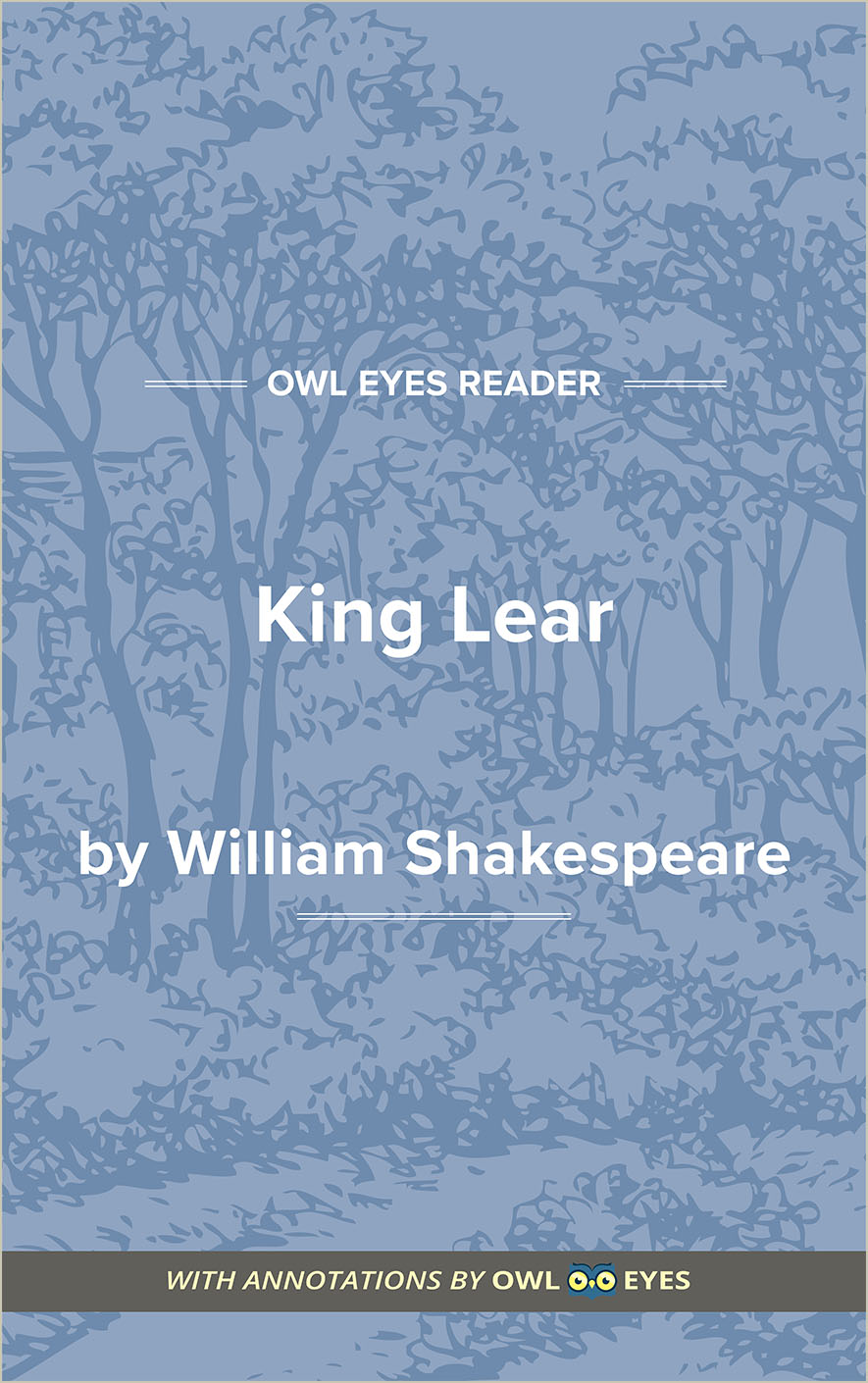Analysis Pages
Plot in King Lear
Double Plot: Two plots in King Lear occur simultaneously, complementing one another by making parallels easy to notice. While King Lear is dealing with treachery from his deceitful daughters, Gloucester is tricked by his illegitimate son, Edmund, into fearing betrayal by Edgar. Both Lear and Gloucester are blind to their children’s true loyalties, and both must come to understanding of their children’s loyalty and wickedness to attempt familial resolution.
Plot Examples in King Lear:
Act I - Scene I
🔒"moiety..." See in text (Act I - Scene I)
"my power..." See in text (Act I - Scene I)
Act I - Scene II
🔒"if this letter speed, And my invention thrive..." See in text (Act I - Scene II)
Act I - Scene III
🔒"By day and night he wrongs me..." See in text (Act I - Scene III)
Act II - Scene III
🔒"Poor Turlygod! poor Tom!..." See in text (Act II - Scene III)
Act III - Scene III
🔒"footed: ..." See in text (Act III - Scene III)
Act III - Scene V
🔒"True or false, it hath made thee earl of Gloucester...." See in text (Act III - Scene V)
Act III - Scene VII
🔒"to a most festinate preparation..." See in text (Act III - Scene VII)
Act IV - Scene II
🔒"my Gloucester ..." See in text (Act IV - Scene II)
Act V - Scene III
🔒"Know, my name is lost; By treason's tooth bare-gnawn and canker-bit:..." See in text (Act V - Scene III)
"And my poor fool is hanged! ..." See in text (Act V - Scene III)
"Rule in this realm, and the gored state sustain...." See in text (Act V - Scene III)

